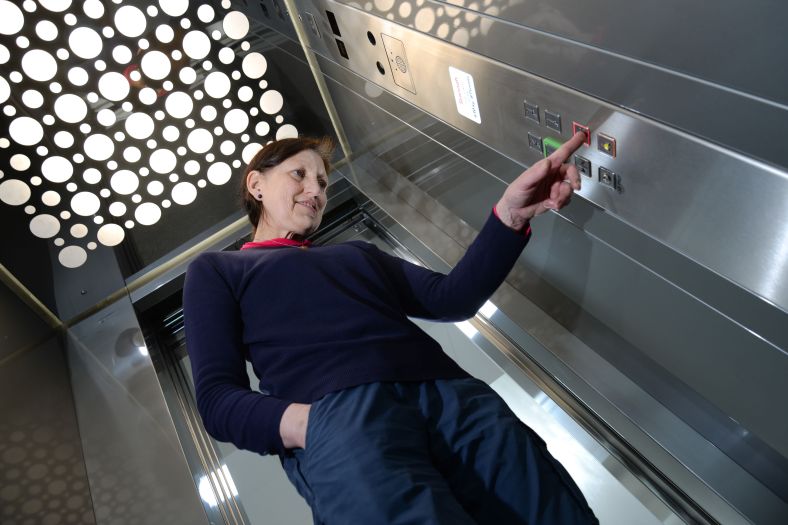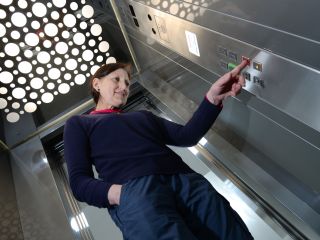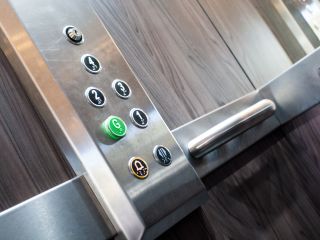Analogue stop-sell milestone reached as part of the PSTN switchover
The digital switchover of telephone lines in the United Kingdom is happening now. This month represented a significant milestone in the timeline, with September 2023 being when traditional telephone lines halt new orders.
By 2025, Openreach will have phased out all copper analogue telephone lines in favour of optical fibre networks. Many building managers may already be aware of the need to change phone lines in the building. Still, some may have yet to realise that their lifts will be affected by the Public Switch Telephone Network (PSTN) switch-off.
The upgrade to a digital line supports the next generation of voice calls – higher quality, fewer faults, less maintenance, and better for the environment. Landlines are going digital across the UK, in the same way broadband works, and this change will affect almost everything plugged into an analogue telephone - including lifts.
What the impacts will be on existing lift stocks
The implications of this move to telephone and internet service provision have been well publicised. However, the knock-on effects on equipment not immediately thought of as being connected to telephone lines are still emerging.
For domestic lifts, power cuts earlier in the year highlighted the need to ensure that those who don't have access to a mobile phone must have a way to seek help in an emergency. In those circumstances, landline/broadband providers are responsible for additional protections, such as battery backup, to ensure customers can reach emergency services.
For commercial lifts, as part of the Remote Alarm on Passenger and Goods Passenger Lifts Standards EN 81-28 (2003), all lifts in the UK are required to have an emergency alarm that was traditionally connected to a rescue service via telephone. With the analogue to digital switchover, lift owners must now manage the transition of their emergency alarms from analogue phone lines to other digital alternatives. Choosing the right solution ahead of time is essential for building owners and managers to keep their lifts compliant and their passengers safe.
This month, BT announced a regional rollout plan for the remaining regions that have yet to switch. A complete list and timeline is here.
The alternatives for existing lift stock
Since 1999, all passenger lifts in the UK have been required to contain an emergency alarm. Once the emergency button is pushed, an auto-dialler provides two-way communication between the passengers and a rescue service, usually run by the lift service provider. The auto-dialler hardware is connected to a phone line with an Openreach socket.
The Lifts Regulations and EN 81-28 do not specify the type of communication link. Still, PSTN has been almost universally used in lift emergency alarms for several reasons. Historically, PSTN was once more readily available and reliable than other alternatives. Many alarm devices use the PSTN line’s DC voltage to avoid needing a backup power supply, and data is transmitted over the line through Dual Tone Multi-Frequency (DTMF).
Optical fibre lines may not always be compatible with these emergency alarm units, as the router carrying the signal through the line also requires an uninterrupted power supply. Otherwise, the service will not operate in the event of a power failure.
If the emergency alarm is non-functional during a 3-day line test, under EN 81-28 regulations, it will be declared non-compliant and switched off. Therefore, lift owners and facility managers need to act soon before PSTN line services are withdrawn in their area.
The GSM phone line alternative
GSM telephony provides a reliable and cost-effective digital solution for most existing lifts. Without physical phone lines and installations, a GSM module can be easily installed and battery-backed to provide a failsafe during a power outage. Signal strength dips can also be resolved through a roaming SIM connecting freely to the best available network.
However, it is vital to consider a professional and trusted managed SIM service to ensure hassle-free and cost-effective virtual communication for your lift. Prepaid SIMs can run out of credit, expire or just get turned off mistakenly, and these situations can exist undiscovered until a real emergency happens, potentially leaving passengers stranded or in danger.
Stannah’s portfolio of digital services includes a managed SIM service, which covers the cost of calls, line rentals and 24/7 connectivity monitoring, offering peace of mind to lift owners, improved product safety for users and reduced risk for the owner. For more information, visit the Stannah website for your local service branch.



